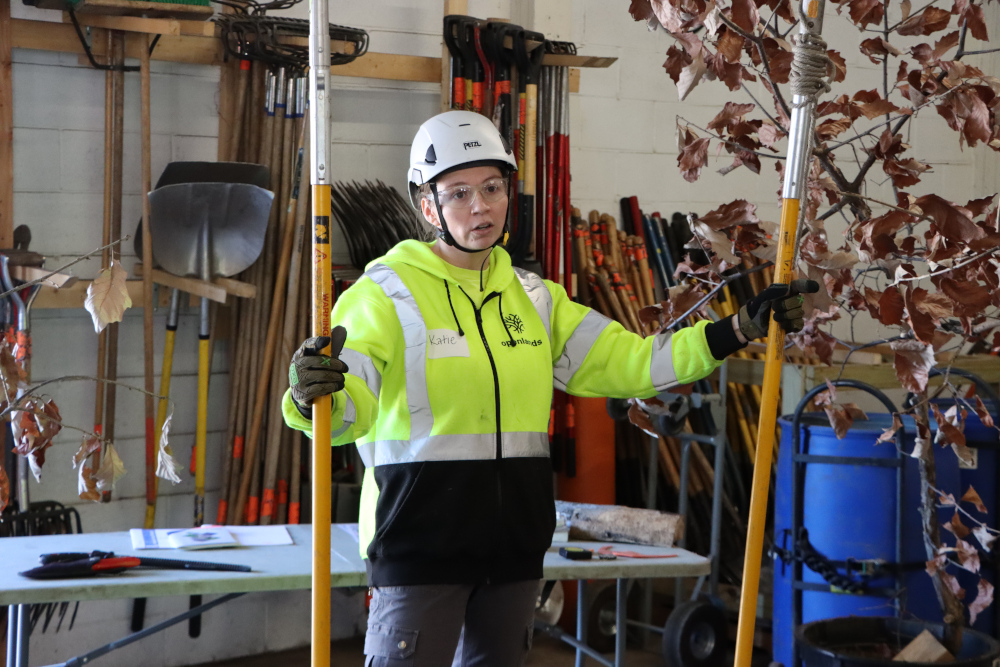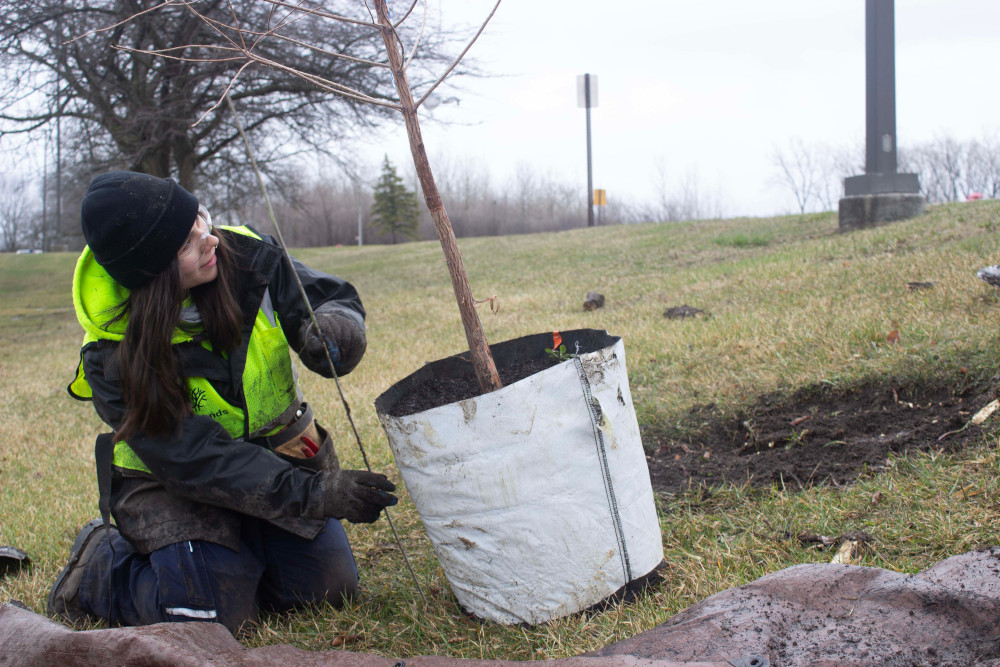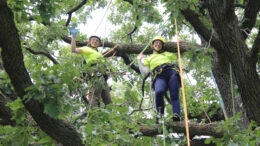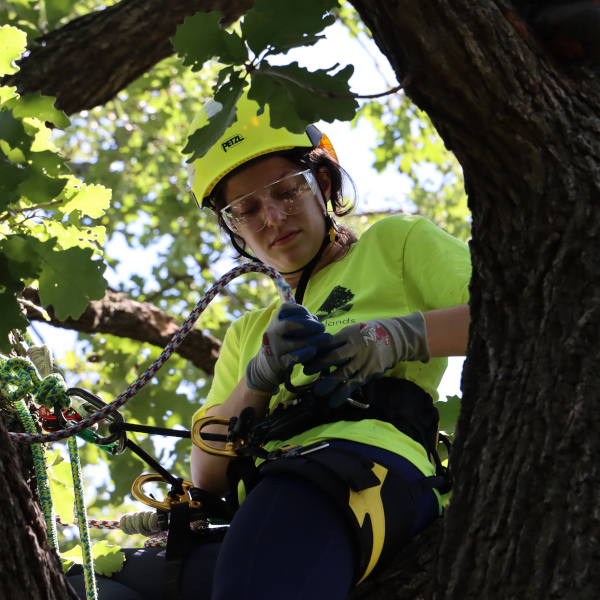In an era marked by increasing environmental awareness and urgency, the need for more diversity in what we call “the green industry” has never been stronger. The U.S. Bureau of Labor Statistics defines green jobs as those that produce goods or services that benefit the environment or conserve natural resources, including ecological restoration, forestry, landscaping, and renewable energy. Despite its crucial role in preserving our planet, the field remains predominantly male, with only 10% women.
As a woman in this field, I’ve gained field experience in both natural areas and urban green spaces, learned technical skills like operating a chainsaw and climbing trees, and secured credentials like becoming an International Society of Arboriculture Certified Arborist. I’ve had the chance to make a difference for the planet, protect habitat for birds and other species, and meet and mentor other women around the United States.
The type of work is varied and dynamic — but why, in an industry dedicated to preserving and protecting “Mother Nature,” are there so few women conducting this important work?
A primary barrier to women’s entry into green industry has been a perception of these jobs as involving physical labor and long hours away from home, features traditionally associated with a male demographic. As a result there hasn’t been sufficient outreach to, or education of, underrepresented groups like women on potential career pathways in the sector. Despite significant improvements in inclusive workplaces, representation is still lacking.
One way to address this is to elevate the many benefits of working in the green industry. Outdoor work not only contributes to improved mental and physical health but also offers a fulfilling choice to those seeking a break from the confines of an office setting.
Opting for a forestry career, for instance, means immersing yourself in nature more than the average person, which actively decreases stress hormones like cortisol and adrenaline, preventing chronic inflammation and supporting a well-regulated immune system. Spending time in a forest, whether urban or rural, also contributes to the mitigation of health problems like respiratory diseases and skin cancer and encourages an active lifestyle, combating obesity.
Growing Trees, Growing Careers
The green industry is experiencing unprecedented growth. Based on data from the Urban Forestry 2020 Project, U.S. job opportunities in urban forestry are projected to grow 5-17%, varying by region. Thanks to many new government programs to mitigate the effects of climate change, there’s a historic level of funding and investment in green infrastructure, clean and renewable energy, and nature-based solutions for sustainable development.

For example, through the Inflation Reduction Act, $1.5 billion is being invested in urban and community forestry through the U.S. Forest Service, promoting increased tree canopy cover in disinvested communities and the proper maintenance and management of urban forests. This growth demands a diverse workforce equipped to execute these projects and tackle future challenges.
Opportunities for Women
An increased emphasis on providing paid training and educational opportunities means there are now many ways women can enter the industry. Parts of the sector are recognized as skilled trades and utilize apprenticeship or earn-as-you-learn models that provide program participants with the equivalent of college-level education, mentorship, and hands-on learning experiences.
One example is the Openlands’ Arborist Registered Apprenticeship program, which I oversee. This program is the first and only Department of Labor-approved Registered Apprenticeship for Arboriculture in the state of Illinois. Initiatives like these give individuals who feel under-qualified or face barriers to entry the opportunity for professional development. They also connect people with peers who can share knowledge, resources, and support to ensure success.

Even in a male-dominated industry, women have found opportunities to support one another. An example in my field is the Women’s Tree Climbing Workshop, where participants join industry leaders to learn the fundamentals of tree climbing and expand existing skills. The workshop gives the group technical learning opportunities and fosters community and belonging.
Companies and organizations are promoting networking opportunities for women across the industry. Events like the International Society of Arboriculture Annual Conference and the Tree Care Industry Association Annual Expo host programs focused on connecting and empowering female professionals.
Despite these positive examples, there’s more work to be done in promoting diversity, equity and inclusion in the green sector. Companies and organizations must prioritize DEI initiatives and invest in training and professional development for all individuals, regardless of gender.
As stewards of the environment and advocates for our planet, leaders and workers in green industries have to encourage and empower more women to pursue careers in the field. By breaking down barriers and fostering inclusivity, we can build a greener, more equitable future.
The opinions expressed above are those of the author and do not necessarily reflect those of The Revelator, the Center for Biological Diversity or their employees.
![]()


